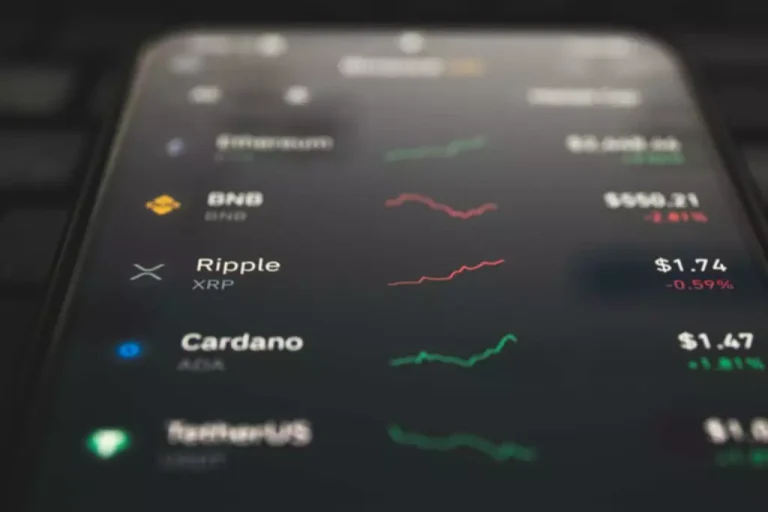The rise of on-line platforms has democratised financial markets, permitting retail merchants to participate extra actively. Their collective actions can amplify market tendencies and contribute to increased market volatility. Institutional merchants have played a pivotal role within the evolution and software of algorithmic trading, significantly influencing the monetary markets. By leveraging massive volumes of capital and advanced technological tools, these traders enhance commerce execution precision, improve market liquidity, and foster larger value effectivity. The retail foreign forex trading sector has witnessed exceptional development, driven by the event of devoted electronic trading platforms and elevated web accessibility. In 2016, retail international exchange trading represented 5.5% of the entire foreign exchange market, with a every day turnover of $385 million.
Retail merchants are people who trade with their personal capital, aiming to grow their wealth by way of investments in stocks, bonds, choices, and futures. The technological revolution in trading platforms has recently democratized access to high-level buying and selling tools, thus amplifying retail trading benefits. With these instruments, retail merchants can optimize their trade executions and improve their market analysis, grinding down the edge as quickly as completely held by bigger entities.
Trading Methods
Whether it’s the agility of retail traders or the might of institutional ones, the markets thrive on the interplay of their unique advantages. Understanding these entities is essential for anyone looking to navigate the monetary markets or pit their wits in opposition to these trading behemoths. Institutional traders, whereas nonetheless taking on threat, sometimes make use of extra subtle danger management methods. These may include hedging, diversification, and using derivatives to guard their portfolios. Institutional investors are more probably to be risk-averse in their method, looking for steady returns quite than high-risk, high-reward alternatives. Retail traders are often more keen to take on vital risk, particularly when utilizing leverage to amplify their potential returns.
This often means that institutional merchants should comply with more advanced reporting necessities and face greater scrutiny from regulators. Furthermore, institutional merchants are less prone to be swayed by emotional elements. Their buying and selling selections are driven by information, analysis, and strategic targets, making them more rational and constant of their strategy. They have a tendency to hold large, diversified portfolios and concentrate on long-term returns, as opposed to short-term gains. Retail traders sometimes spend cash on stocks, bonds, choices, and futures, and so they have minimal to no access to IPOs. Most trades are made in round lots (100 shares), however retail merchants can trade any quantity of shares at a time.
Retail merchants, in contrast, are characterised by their smaller, extra nimble trades, typically in spherical plenty of about a hundred shares. These trades hardly ever move the market needle in the finest way institutional trades do, allowing retail merchants to operate beneath the radar of bigger market currents. They usually favor small-cap stocks, an method that enhances their pursuit of a diversified funding portfolio. The measurement of their trades facilitates flexibility and the flexibility to swiftly pivot as market conditions evolve.
One of the first steps in growing a profitable retail buying and selling strategy is to create a complete trading plan. This plan should define your financial objectives, threat tolerance, and the particular trading strategies you plan to use. It is necessary to have a transparent understanding of your investment goals and the time horizon you’re working with.
Future Tendencies In Institutional Algo Trading
The accessibility of retail trading has expanded with technological developments, allowing just about anyone with a computer and internet connection to participate in monetary markets. As someone navigating funding choices, you may question how these differences impression market dynamics and your individual buying and selling opportunities. By exploring these distinctions, you can higher grasp how each method influences the market and your potential strategies.

Establishments operate underneath stricter compliance frameworks as a result of their larger scale, addressing dangers like market manipulation or systemic impacts. Retail trading, though less regulated on the same stage, is still subject to protections like monetary disclosures and investor safeguards. The influence Peer-to-peer of know-how has also contributed to blurring the traces between these buying and selling varieties. Retail traders can now entry sophisticated instruments, while institutions could adopt extra agile and cost-effective applied sciences. The larger the institutional fund, the higher the market cap institutional traders tend to personal. Because of the big volume, institutional traders can significantly influence the share worth of a safety.

Retail merchants can select from a extensive range of investment choices, including shares, bonds, options, and futures, permitting them to diversify their portfolios and doubtlessly generate earnings. Regulatory safeguards for retail merchants are multifaceted, encompassing restrictions on sure high-risk activities, transparency requirements for brokers, and mechanisms for dispute decision. These measures collectively aim to create a secure and truthful trading environment for particular person traders, permitting them to participate within the financial markets with confidence and peace of mind. As retail trading continues to evolve, regulatory safeguards remain a cornerstone in fostering a healthy and equitable marketplace for all participants. Retail buying and selling encapsulates the financial activities of particular person merchants who purchase and promote securities, corresponding to stocks, bonds, choices, and futures, leveraging their personal wealth. A important benefit for hedge funds and different institutional traders is extra bargaining energy.
The collective energy of retail dealer communities, fuelled by social media discussions, can influence asset costs. The “Reddit effect” exemplifies how retail trading, via on-line boards, can challenge conventional market dynamics. Knowing the difference between retail traders and institutional merchants is essential. You most likely had a good idea about why you are the kind of trader that you are, but most people don’t take the time to be taught about the different kinds of traders out there. Keep In Mind, the extra you study the higher prepared you could be when making trades within the Inventory Market. One of the primary drivers behind the rise of algorithmic trading has been the event of computerized buying and selling systems and sophisticated knowledge analytics.
- As monetary markets adapt to technological developments, regulators scrutinize the systemic dangers posed by high-frequency and algorithmic buying and selling.
- They can only put their capital in sure accredited markets – futures, stocks, Foreign Exchange buying and selling etc.
- By following these retail trading methods and ideas, novices can enhance their chances of success and navigate the dynamic world of retail trading with more confidence.
- Nonetheless, social media platforms have allowed teams of retail merchants to coordinate their efforts, leading to notable cases of coordinated buying or selling that briefly impact sure stocks.
- Compliance with these evolving regulations can be resource-intensive, however is crucial for maintaining market integrity and avoiding penalties.

Furthermore, regulatory safeguards regularly embrace mechanisms for addressing disputes and ensuring truthful treatment. In the event of conflicts between retail merchants https://www.xcritical.com/ and brokers, regulatory our bodies provide avenues for dispute resolution. This may involve mediation services or formal procedures to handle grievances, guaranteeing that retail merchants have recourse in conditions where they believe their rights have been violated. As we will see, Institutional merchants are essentially the most influential ones out there.

Retail merchants, whereas more and more geared up with superior tools, do not have the identical breadth of support or know-how at their disposal. Environment Friendly markets are those where asset prices reflect all available data precisely and quickly. Institutional traders with entry to stylish analysis tools may help determine mispriced belongings, which can lead to corrections and improved efficiency. Retail traders additionally play a task by performing on publicly obtainable information and thereby influencing market costs.
Understanding these differences may help merchants make better choices and set realistic expectations primarily based on their trading goals. The benefits introduced forth by institutional algorithmic buying and selling embrace increased transaction pace, improved threat administration by way of quantitative evaluation, and enhanced operational efficiency. These advantages allow financial establishments to capitalize on fleeting market alternatives and make more informed trading choices, thereby optimizing their investment strategies. Institutional merchants are people who handle the purchase and sale of securities on behalf of establishments or groups of individuals. Institutional merchants work for entities like hedge funds, endowment funds, and funding banks. They have the opportunity to put money into securities which are sometimes off-limits to retail traders, similar to advanced monetary derivatives like futures and options.
As we’ve already mentioned above, the retail trading market is huge when it comes to size and scope. About 250 billion dollars are spent each day in the transactions of the retail market according to The Financial Institution of International Settlements. In today’s world, retail merchants have access to plenty of monetary details about the market, trading education, and other necessary instruments. On top of that, cellular investment has turn into a quite common factor within the twenty first century and buyers tend to handle their portfolios from their very own telephones or other forms of gadgets. Apart From, institutional traders sometimes keep away from shopping for a high proportion of companies’ belongings because there’s a high probability that it will break securities laws. Just Lately, the market volatility of 2020 has seen an increase in retail traders outperforming institutional merchants.
One of the prominent strategies is high-frequency buying and selling (HFT), which involves executing numerous orders in fractions of a second. HFT leverages worth inefficiencies and arbitrage alternatives throughout a quantity of markets. Institutional traders use subtle algorithms to research huge quantities of market data rapidly, enabling them to make split-second selections that individuals cannot replicate. This article aims to explore the intersection between institutional merchants and algorithmic trading. By analyzing these dynamics, we will acquire insights into the evolving panorama of monetary markets and the long run trajectory of trading strategies.

